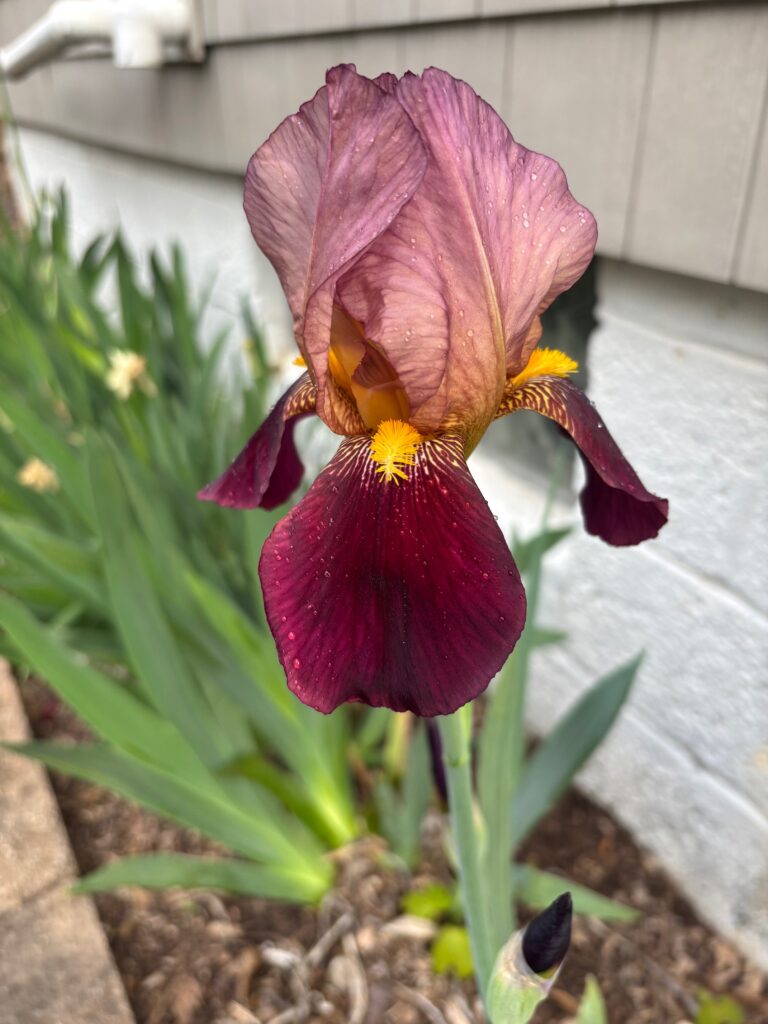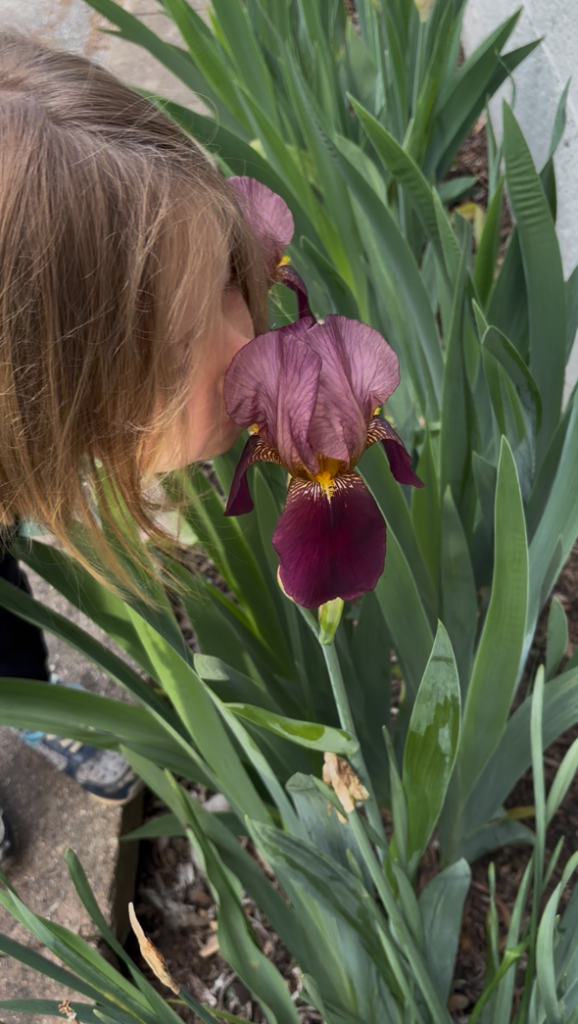Blog
The Irises' Lament
When we moved into our house several years ago, my mother gave me irises that once belonged to my great-grandmother. She had planted them at my childhood home. Now, she wanted me to have them for my new home and for the family I might grow there.
Today, they are in full bloom. Planted near the entrance to my home, they proudly greet me as I come and go. I press my cheeks into the soft palms of their petals, as if cradled in a mother’s hands before a kiss. Their citrus musk envelops me like a familiar perfume. Robed in deep purple and gold-embroidered silk, they stand like queens in a procession. Their presence invites me to commune with my ancestry.
It was for these same qualities that I once resented them. Their proud stalks and open petals stood in contrast to my hunched shoulders and clenched jaw. Their fragrance was suffocating. Their regal display, a mockery. Their presence bound me to a lineage I wanted to escape– one marked by a home filled with violence, relationships lost to mental illness and addiction, and the cruelty of mothering myself while mothering my child.
They seemed to me like a beautifully curated lie that my mother was asking me to keep. So, for a long time, I considered tearing them out and letting them die– taking the lie with them. But when I imagined my mother digging in my great-grandmother’s garden bed, trying to preserve an image of love and connection in the only way she knew how, my quiet resentment gave way to a deafening lament. The wail that arose from my body did not belong to me alone– it carried the voices of all the women who came before me, giving sound to a grief generations deep.
For generations, the women in my family were erased through service to others, especially in their role as mothers. For them, motherhood meant shame for having needs, suppressing desires, and being made to feel incomplete without their children. They swallowed their true selves with a smile, and then they required the same of their daughters. Our needs– to be seen and truly known– became threatening because they reminded our mothers of the very things they were denied. Things they had been conditioned to provide for their mothers instead of receiving themselves. A mother’s love became control. A daughter’s silence became survival. And the cycle repeated.
Irises were an offering in the place of the apologies my mother couldn’t say. The reconciliation I needed would never come. My mother loved me– just not in the way I needed. She did her best– and I deserved better. She did what she knew. But now I know better, so I do differently.
The irises still remind me of the painful relationship I have with my mother. But they also remind me that I’m breaking the cycle, and of what is now possible for our lineage. One day, my daughter may come to me with hurt I never meant to pass along. When she does, I will not look away. I will bear witness to her pain without denial. And I will offer her not just these irises, but presence, understanding, and a chance to heal together.
Sometimes I imagine myself as the Greeks once imagined the goddess Iris, traversing a rainbow bridge between worlds. Not between gods and mortals, but between the women who came before me and the daughters still to come. By keeping the irises, I can look back on my ancestors not only with grief, but with compassion. And I can look forward with hope that our legacy can change.
I’ve told my daughter the story: how these irises belonged to the women in our family before us, and how one day– if she wants them– they can be hers. When she looks at them, I know she won’t remember a perfect mother, but I hope she remembers one who knows herself, lives her life fully, and loves her daughter deeply.

